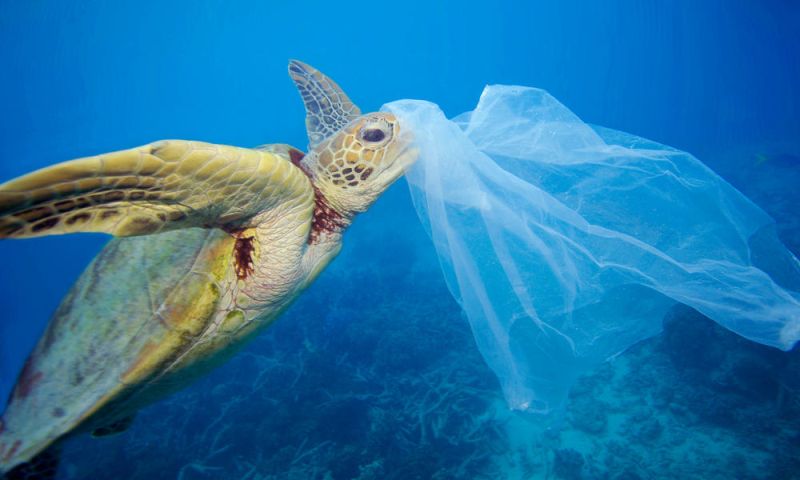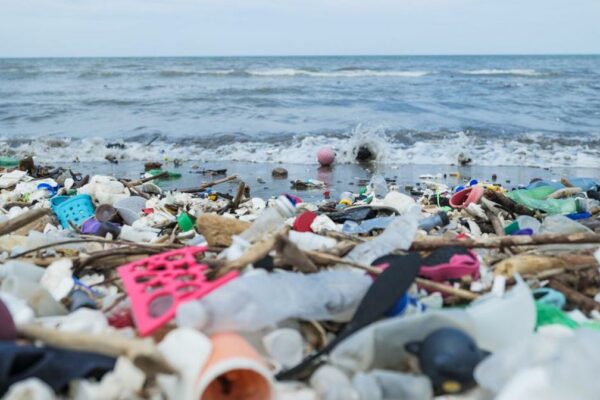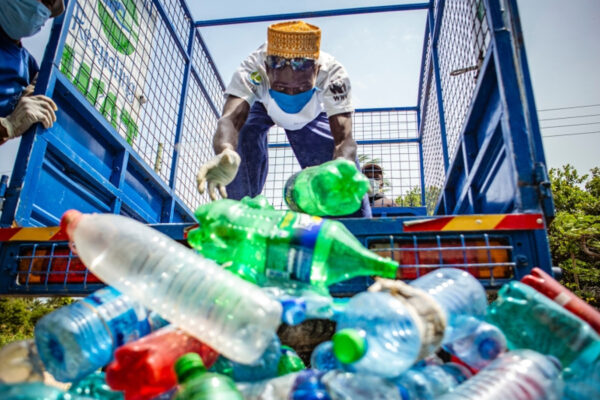Researchers Reveal Odor of Ocean Plastic Attracts Turtles, That’s Why They Eat It
In the past few years, many pictures of marine species entangled in plastic waste have been circulated on social media. While the ecosystems choke on it, the makers of plastic sit back, doing nothing to reverse the noxious impact of this non-biodegradable material on the environment.
Despite the ubiquity of the threats of plastic pollution, very little has been researched about the sensory mechanisms that drive wildlife to interact with plastic waste.
Recently, the researchers from the University of North Carolina at Chapel Hill revealed in a study that the sensory mechanism of ocean plastic drives the marine species to interact with plastic debris. Nearly 700 marine species, including sea turtles and whales, are threatened by plastic debris through ingestion and entanglement.

Researchers have revealed that the edible odor of ocean plastic attracts the turtles and they eat them / Image: World Wildlife Fund
The study, “Odors from marine plastic debris elicit foraging behavior in sea turtles,” was published on March 9, in the journal Current Biology. The Carolina team worked on the study with lead author Joe Pfaller from the Carette Research Project in Savannah, Georgia.
This finding is important because it’s the first demonstration that the odor of ocean plastics causes animals to eat them. It’s common to find loggerhead turtles with their digestive systems fully or partially blocked because they’ve eaten plastic materials. There also are increasing reports of sea turtles that have become ill and stranded on the beach due to their ingestion of plastic.
Kenneth J. Lohmann, Charles P. Postelle Jr. Distinguished Professor of Biology at Carolina said.
In parts of the Pacific Ocean there are huge areas covered with floating plastic debris. One concern this study raises is that dense concentrations of plastics may make turtles – or other species – think the area is an abundant source of food. These areas may draw in marine mammals, fish and birds because the area smells like a good foraging ground. Once these plastics are in the ocean, we don’t have a good way to remove them or prevent them from smelling like food. The best thing we can do is to keep plastic from getting into the ocean at all.
Lohmann further added.
According to the research, the ocean plastics build a layering of algae and microorganisms that smells edible to aquatic species. Recent findings indicate that marine animals get attracted to the smell of the ocean plastics.
Very young turtles feed at the surface, and plastics that float on the surface of the ocean affect them. Older turtles feed further down in the water column, sometimes on the ocean bottom. Regardless of where plastics are distributed in the ocean, turtles are likely to eat them.
A Carolina biology doctoral student, Kayla M. Goforth, who worked on the study, said.
The report is based on the response of oceanic-stage loggerhead sea turtles to airborne odorants originating from plastic waste in the same way that they respond to food odorants. The results demonstrate that sea turtles detect odor associated with ocean plastics, which smells like food and the consumption of it could be fatal.
The researchers studied 15 captive-reared loggerhead turtles, each around five-months-old, and placed them in a laboratory aquarium. Then they added aromas of clean water, clean plastic, turtle food, and five-weeks-old ocean plastic.
The turtles showed no reaction to odors of clean water or clean plastic. However, they exhibited foraging behavior, such as poking their noses out of the water and showing increased activity, when exposed to smells of ocean plastic or turtle food.
Although the study has revealed that the odor of ocean plastic attracts turtles and tricks them into eating it, it raises the question of the long-term impacts of plastic waste on the aquatic ecosystem and its inhabitants.
Credit: WWF


